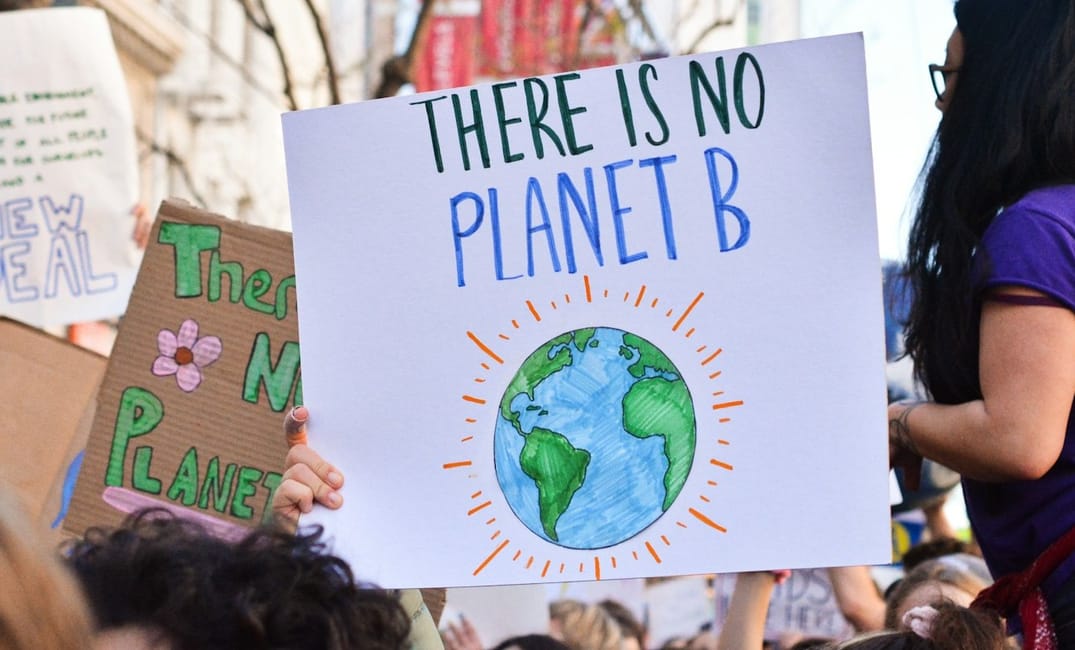✏️ Milou Klein
@_MilouKlein
In a mere couple of weeks, everyday life has drastically changed for all of us. Suddenly, we are missing simple things, like going for a coffee, taking more than one walk a day or just being able to go wherever we want, whenever we want. It is only logical, then, that so many of us want to ‘go back to normal’. But what does that entail, when ‘normal’, in so many areas, was exactly the problem?
With all the severe changes that have been made in the last weeks, it is important to have a clear and strong plan to come out of this lockdown. However, it is equally important to remember that we were not exactly doing too well before the pandemic hit us. While I am definitely not arguing that this pandemic has benefits, in some ways it really is the perfect opportunity to create a world that is better than the one before. Let’s remember, we’re facing two crises right now: corona and climate change.
With air travel halted and people urged to stay home, CO2 emissions are falling. This might be good for the climate now, but it will be meaningless if we simply go back to ‘business as usual’ when the lockdown gets lifted. Our governments must stop burying their heads in the sand and realise that the climate crisis needs to be addressed rigorously and at once.
Not only has the pandemic changed our everyday life, but our economy has had to take some hard hits as well. It is becoming increasingly clear that our capitalist economy is more fragile than those benefiting from it would want us to believe. In a study published on May 4th, Nobel-prize winning researchers argue that any economic recovery from COVID-19 must be conscious of the environment, not just to tackle the climate crisis, but for the sake of our economies as well.
Major financial help packages are being drawn up to support economies in the aftermath of the coronavirus pandemic economic downfall. Many now see an opportunity to steer away from a polluting ‘business as usual’ like we had before the pandemic, to a low-carbon economy after the pandemic.
Governments are now facing an important choice: will they stop allowing polluting businesses to control them and start demanding these companies implement environmental reforms in turn for government assistance, or will they, once again, allow the economy to outweigh the citizen’s needs, and let the companies go back to their polluting ‘business as usual’?
Without a doubt, the climate crisis is serious enough by itself to warrant complete attention and drastic measures. However, for those that still need some convincing that we truly cannot go back to ‘normal’, it might be interesting to note what a ‘green recovery’ can do for our economies. A report by the International Renewable Energy Agency, an ‘intergovernmental agency’ which ‘promotes the widespread adoption and sustainable use of all forms of renewable energy’ suggests that investing in renewable energy could generate enormous benefits for our economy, while simultaneously addressing the climate crisis.
Many leaders in the European Union are already calling for a ‘green recovery’, which would mean that their European Green Deal (a set of policies to make the EU climate neutral by 2050), be implemented sooner than we thought. However, it is crucial that this ‘green recovery’ is extremely well thought through and tackles the issues in the right way. If this is not the case, these climate-focused programmes could end up rewarding high polluters, and therefore utterly failing.
The European Green Deal proposes a mechanism that would adjust taxes to goods imported into Europe depending on their greenhouse gas footprint. In other words, high taxes for high polluters, thereby rewarding those who have low carbon emissions. However, some countries, such as France, have been pushing for an accelerated timeline. Implementing this too early, however, could mean that the measuring of greenhouse gas pertaining to these goods can become flawed, as it would mean that a much-needed system to record and track greenhouse emissions over time could be overlooked in favour of a sooner implementation. This could make the implementation meaningless, for without accurate data, the EU could end up rewarding big polluters because of inaccurate data.
It’s not only world leaders and economists that are calling for a ‘green recovery’. Around the world, activists, business leaders and organisations are asking the government to make sure that any and all financial packages will focus on the environment as much as on the economy. In the Netherlands, international environmental organisation Extinction Rebellion launched a campaign ‘no bailout without a phase out’, demanding the government does not give money to big polluters without them being required to adhere to climate and environmental targets.
While we are facing these unprecedented times, then, it is important to remember we are fighting multiple fires at a time. Quite literally, as only a few months ago the news was chock-full of stories about firefighters being overwhelmed with the vast wildfires in Australia. It is completely understandable that our attention, for a large part, is going towards the coronavirus pandemic right now. However, this does not mean we can forget about the climate crisis. So while we are recovering from the effects the pandemic has had on our lives, society and economy, let’s work toward a greener future as well.
Thanks for reading our article! We know young people’s opinions matter and really appreciate everyone who reads us.
Give us a follow on Instagram, Twitter and Facebook to stay up to date with what young people think.

